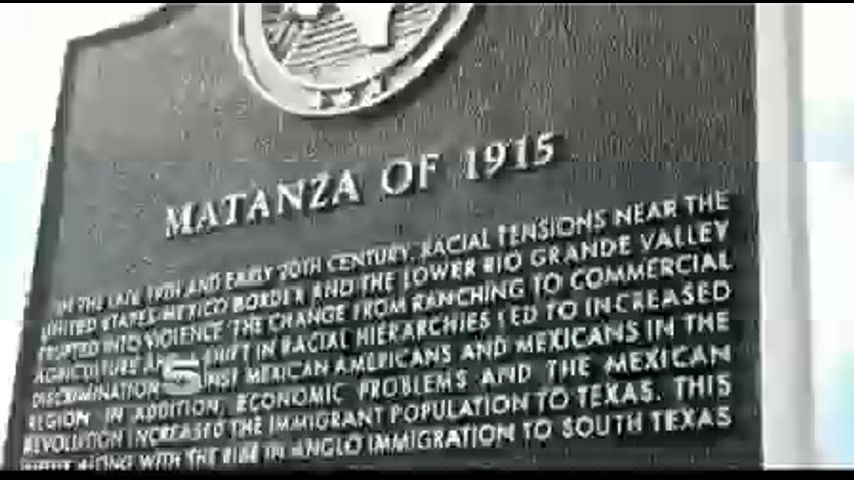Valley Group Refuses to Forget La Matanza of 1915
SAN BENITO – A new marker sanctioned by the Texas Historical Commission is bringing light to a dark time in Rio Grande Valley history.
The plaque, off of southbound Exit 16 along I-69E near San Benito, was unveiled Saturday, Oct. 14 to commemorate the killing of hundreds of Mexicans and Mexicans-Americans in the 1900s.
In 1915, racial tensions erupted into violence and local residents accused law enforcement and the Texas Rangers of being responsible for La Matanza of 1915.
“A marker to remember the time when law enforcement, Texas Rangers, local law enforcement, vigilantes and the U.S. military indiscriminately killed Mexican and Mexican-Americans,” said Trinidad Gonzalez.
Ben Johnson with Layola University of Chicago grew up in Texas, but it was later that he learned of the events.
“When I first read it, I was in shock,” he said. “I had no idea this had happened and wondered how it could be that something that was so violent and has so many long-lasting consequences.”
In a time of high racial tensions, a group organized what they called The Revolution of Texas to fight discrimination. However, others saw it as a threat to the Anglo migration coming to the Valley.
As a response, they said some 300 individuals were killed.
“Law enforcement would go and randomly pick people out of communities and just execute them,” said Gonzalez. “Or they would arrest them and then execute them later that night with the excuse they were attempting to escape.”
Most people at the event like Gonzalez belong to a group called Refusing to Forget.
“My wife’s grandmother was the wife of Paulino Serda, who was killed by the Texas Rangers in 1915,” said Eloy Gonzalez, an attendee.
“My mother was about one year old when my grandmother had to leave the country because her father had been killed by the Texas Rangers,” said Elma Ortiz Gonzalez, descendant of one of the victims. “I’m very honored to be here, to be one of her descendants.”
Noreen Rivera, assistant professor at the University of Texas Rio Grande Valley, said her relatives lived in the area “in the early 1900s and were victims.”
“This marker is incredibly important because it tells about a history that has been silenced for a really long time,” she said.
“It’s very good for us to recognize those people who were murdered. Whose lives were taken away without due process, without any proof of guilt, many of them simply because they were Mexicanos, Mexican-Americans,” said former state representative Alex Moreno. “We can’t change that nor do I think we should be taking revenge on anyone. We’re just here to honor the people who made the sacrifice.”
Johnson said this marker can serve as a stark reminder of a dark time in history.
“To serve as a sobering reminder of what happens when law enforcement can act with impunity,” he said.





